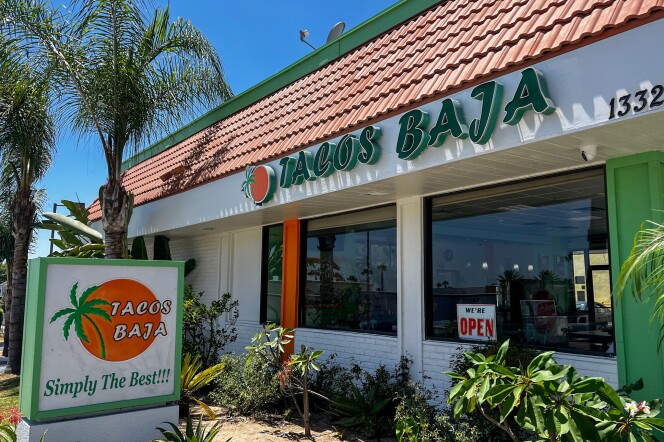This story is free to read because readers choose to support LAist. If you find value in independent local reporting, make a donation to power our newsroom today.
These middlemen say they keep drug prices low. California lawmakers don’t buy it

It’s no secret that prescription drugs are unaffordable for many Californians. In just five years, spending on prescription drugs ballooned from $8.7 billion to $12.1 billion, an increase of 39%, according to the most recent state data.
Consumer advocates and health economists are placing some of the blame on pharmaceutical middlemen, which they say needlessly drive up costs by tacking on fees and withholding discounts as profit. It’s a problem that has plagued regulators across the country. This week, California lawmakers are set to vote on first-time regulations aimed at curtailing their tactics.
Who are benefit managers?
Pharmacy benefit managers, also known as PBMs, most often serve as intermediaries between insurance companies and drug manufacturers. They process claims, negotiate the price of drugs using a complex system of rebates, and control the list of drugs that health insurance plans cover, also known as a formulary.
What California is considering
They’re already regulated to some degree in most other states, including Texas and Florida. The California proposal would require the state insurance department to license pharmacy benefit managers, and would require pharmacy benefit managers to disclose prices paid and discounts negotiated with drug manufacturers. It would also mandate that 100% of the discounts from drug manufacturers be passed onto health insurance plans.
“(Pharmacy benefit managers) have insinuated themselves into the nerve center of the health system where they exercise enormous leverage over the health plans, over the pharmaceutical manufacturers, over the consumers,” bill author Sen. Scott Wiener said. “They’re making enormous amounts of money at the expense of consumers.”
What proponents say
The companies argue that they save money for patients and insurance plans — the more patients they represent, the more leverage pharmacy benefit managers have to negotiate lower drug prices, for example. They are fiercely opposed to the legislation and warn that the proposed regulations will increase health premiums for Californians by $1.7 billion in the first year and $20 billion over a decade.
“The bottom line is (Senate Bill) 966 does nothing to reduce prescription drug costs or improve patient access and safety,” said Greg Lopes, a spokesperson for Pharmaceutical Care Management Association, an industry lobby for pharmacy benefit managers.
Putting the market in context
Three pharmacy benefit managers dominate the industry: CVS Caremark, Express Scripts and OptumRx represent more than 80% of the market.
Increasingly, research suggests consolidation drives prescription drug prices higher. The biggest player, CVS, has grown to encompass the familiar retail pharmacy stores, pharmacy benefit management services, and health insurance through a merger with Aetna.
“They’re way overdue for regulation,” Wiener, a Democrat from San Francisco, said.
Previous attempts to regulate pharmacy benefit managers have failed in California. In 2021, Gov. Gavin Newsom vetoed legislation that would have prevented pharmacy benefit managers from “patient steering,” a practice that forces patients to use only specified pharmacies that are also often owned by the pharmacy benefit managers.
“In California we’re really behind. They have been far more aggressive in other states regulating (pharmacy benefit managers),” said Michelle Rivas, executive vice president of government relations at the California Pharmacists Association, which co-sponsored the bill. “The ideal would be comprehensive federal legislation. Unfortunately, we don’t have the luxury of time to wait for Congress to move on this issue.”
-
Four years after SARS-CoV2 sparked a devastating global pandemic, U.S. health officials now consider COVID-19 an endemic disease.
-
The repayment demands, detailed in Orange County letters obtained by LAist, come as officials found that the nonprofit Viet America Society failed to show that meals to seniors were handed out as required under a county contract. Supervisor Andrew Do did not respond to requests for comment.
-
It's fighting talk, but LAist associate food editor Gab Chabrán says his hometown's combo of newcomers making waves and old timers making faves hits the spot.
-
The iconic Skid Row building went from the true crime spotlight to homeless housing. But some residents wonder if they were better off before moving in.
-
In a city that's exploding with excellent bakeries, deciding where to go for that croissant or cupcake can be a challenge. You told us your fave raves
-
The project’s three proposed routes would extend the K line from Expo/Crenshaw up through Hollywood.












